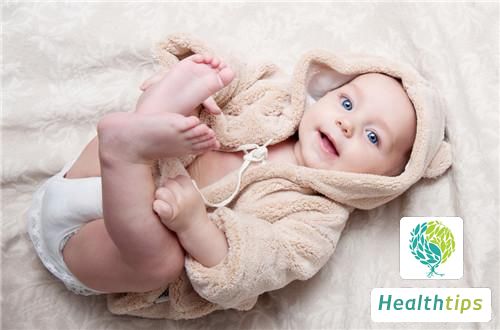1. Can newborns drink boiled water?
We know that the nutrients required by newborns mainly come from breast milk, and since breast milk is a liquid, many children basically do not need to drink water. However, some parents may notice signs of dehydration in their children, and normally, giving them some water to drink would suffice. But since children are young, there are concerns that they may not be able to drink water like normal adults. So, can newborns drink boiled water? Let's take a look.
 1.1 Water is an essential substance for the human body, and babies can certainly drink it. However, it is important to pay attention to the temperature of the water and control it appropriately. The amount fed each time should not be too much. If breastfeeding is used, there is no need for additional water supplementation. However, for babies who drink formula milk or cow's milk, it is necessary to supplement with boiled water in a timely manner every day.
1.2 When drinking water, it is best to choose fresh water quality and avoid using water that has been left overnight. At the same time, observe the volume and color of the urine excreted by the baby. A yellow color indicates symptoms of dehydration. In such cases, supplementation with water can accelerate the excretion of urine and achieve the purpose of relieving dehydration. Generally, urinating more than 6 times a day is considered normal.
1.3 The temperature in the bedroom should be flexibly controlled, as an overly hot and stuffy environment can easily cause the baby's water to evaporate too quickly. Therefore, the temperature should be maintained above 20 degrees in winter and around 26 degrees in summer. During sunny weather, open the windows in time to let fresh air in. In dry seasons, it is advisable to turn on a humidifier or sprinkle some mild water on the ground to keep the air moist.
2. Signs of dehydration in babies
1.1 Water is an essential substance for the human body, and babies can certainly drink it. However, it is important to pay attention to the temperature of the water and control it appropriately. The amount fed each time should not be too much. If breastfeeding is used, there is no need for additional water supplementation. However, for babies who drink formula milk or cow's milk, it is necessary to supplement with boiled water in a timely manner every day.
1.2 When drinking water, it is best to choose fresh water quality and avoid using water that has been left overnight. At the same time, observe the volume and color of the urine excreted by the baby. A yellow color indicates symptoms of dehydration. In such cases, supplementation with water can accelerate the excretion of urine and achieve the purpose of relieving dehydration. Generally, urinating more than 6 times a day is considered normal.
1.3 The temperature in the bedroom should be flexibly controlled, as an overly hot and stuffy environment can easily cause the baby's water to evaporate too quickly. Therefore, the temperature should be maintained above 20 degrees in winter and around 26 degrees in summer. During sunny weather, open the windows in time to let fresh air in. In dry seasons, it is advisable to turn on a humidifier or sprinkle some mild water on the ground to keep the air moist.
2. Signs of dehydration in babies
If a baby is not adequately hydrated, their body will send out various warning signals:
2.1 Within 24 hours, the baby's wet diapers are fewer than 6 pieces, or the diaper remains dry for 6 hours or more.
2.2 The urine is dark yellow and has a strong odor.
2.3 The fontanel (soft spot on the head) appears sunken.
2.4 The baby's lips are dry, or an older child complains of thirst.
2.5 The skin's elasticity is poor. When the mother pinches the skin on the baby's back with her thumb and forefinger and suddenly releases it, the skin should flatten out quickly. If the baby exhibits the above warning signs, the mother may consider supplementing water, but at this point, the baby's water balance has already been disrupted, and cells are beginning to dehydrate, potentially compromising their health. Therefore, the correct approach is to provide hydration according to the baby's physiological needs before dehydration warning signs appear.




















